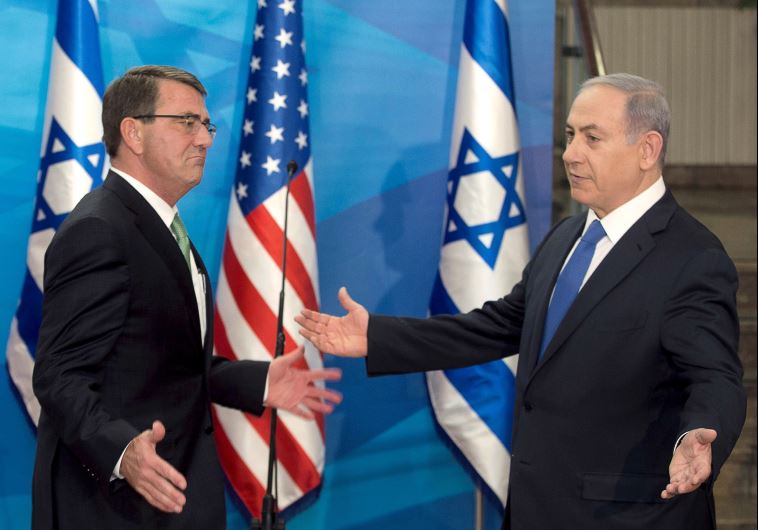How will history judge Netanyahu’s fervent opposition to the Iran deal?
Netanyahu insists that the deal with Iran was an historic mistake. But history makes its own judgments in its own good time.
 Benjamin Netanyahu greets visiting US Secretary of Defense Ashton Carter in Jerusalem, July 21Updated:
Benjamin Netanyahu greets visiting US Secretary of Defense Ashton Carter in Jerusalem, July 21Updated: